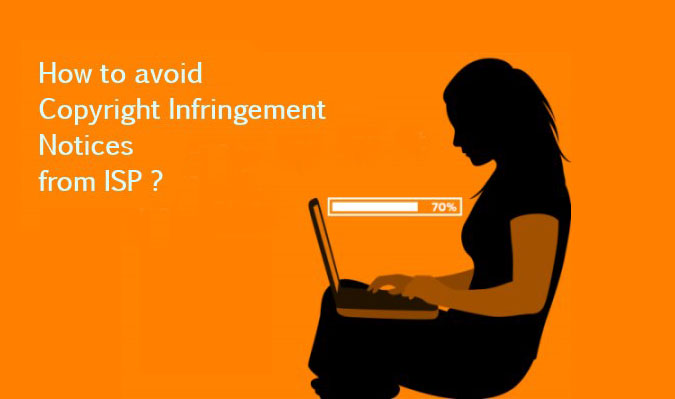In this blog post, Vikram Chaudhuri, Student of Department of Law, Calcutta University, and pursuing a Diploma in Entrepreneurship Administration and Business Laws by NUJS, discusses the liability of an Internet Service Provider when an online trademark is infringed upon.
Introduction
Internet Service Provider (ISP) is a company which provides internet services, including personal and professional services to a client by generally charging a monthly fee. In addition to serving individuals, the ISP’s also have companies as their clients and provide them with a direct connection from the company’s network to the Internet.
Online Trademarks Infringement
Now let us discuss what online trademarks infringement is? Simply put, online trademarks infringements involve misuse of someone else’s registered trademark in an online manner.
Nowadays, the Internet is the main means of communication. Although it has a high number of users, the Internet is also an ideal tool for committing offenses. The main problem regarding online trademarks infringement may arise when the internet user commits a crime through the services of the ISP, can the ISP be liable?
While considering the liability of ISP’s in India for trademark infringement, the following Acts are important; the first one is the Trademarks Act, 1999 and the Information Technology Act, 2000.
Clause (6) of Section 29 of the Trade Marks Act, 1999 sets out what constitutes use of a registered trademark. Subsection (b) states that use is when an entity that “offers or exposes goods for sale puts them on the market, or stocks them for those purposes under the registered trademark, or offers or supplies services under the registered trade mark”.
This can be interpreted to include service providers, whether they are ISPs or auction or e-commerce websites that facilitate infringement by stocking the goods bearing the registered trademarks.
Liability of Intermediaries
The Information Technology Act, 2000 has been amended in 2008, so as to broaden the definition of intermediaries and to include internet service providers, online payment sites, online auction sites, etc.
According to the Information Technology Act, 2000 an intermediary must not knowingly publish, host, or initiate transmission of unlawful information.
The intermediary will be liable if:
- It has aided or induced the commission of the unlawful act knowingly.
- Even after being notified by a Government agency the intermediary fails to remove any content, which is being used for some illegal activity.
The amended Section 79 of the Information Technology Act, 2000 provides that an intermediary will be liable when it:
- Initiates the transmission.
- Selects the receiver of transmission.
- Selects or modifies the information available in some way.
- Does not observe due diligence.
- Plays an active part in the infringement of the trademark.
Therefore now the burden of proof has been shifted to the accuser, and ISP’s will be deemed to be innocent as long as they continue to adhere to all the other provisions of law.
However, the ISP will be bound to be liable if it fails to remove any content even after a complaint is made to it in regards to any infringement. ISP’s need to take basic precautions to ensure that they filter out any content which is in violation to one’s rights.
ISP’s need to take basic precautions to ensure that they filter out any content which is in violation to one’s rights.
The problem arises when people want ISP’s to be financially responsible rather the persons directly responsible for the infringement. The main reason is most IPS’s are corporate entities, and it is easier to find the ISP hosting the content rather than the person who has uploaded the content. Moreover, there is another aspect to this. Copyright holders tend to target the ISP’s as they have more financial capability than the person.
Trademark Infringement and an ISP
Firstly the ISP can look for contents, which are uploaded and can filter them if they want to. But this will not be favorable for their clients as it will harm their privacy and freedom from online censorship. Again it would be a costly affair as there is so much content that has to be filtered by the ISPs, and moreover, it is not possible to look at the content and understand if its copyright protected or not.
The only other alternative that ISPs have is to make their clients sign an indemnity contract, therefore, letting them assume all responsibility in the case of any trademark infringement.
From the viewpoint of any Internet Users- if ISPs are made responsible for infringements, then smaller ISP’s will be forced to shut down. The larger ones will charge more as they have to deal with potential lawsuits. Ultimately, this cost will be shifted to the customers, making access to cost of Internet higher.
However, if the ISPs are not made liable, the problem of piracy will keep on increasing.
L’Oreal vs. eBay
Now let us discuss one example: The L’Oreal vs. eBay Case.
This case was handled by the High Court of London and then after by the Court of Justice of the European Court (CJEU). L’Oreal claimed that eBay didn’t act to prevent sales of counterfeited goods on the online market, and therefore they sued eBay for online infringement of the trademark. The Court held that eBay used keywords corresponding to L’Oreal’s trademarks and held that eBay was liable as it had played an ‘active’ part in trademark infringement. It placed a higher burden on online sellers.
Due Diligence
For India, the rules for due diligence has been prescribed in the Information Technology Guidelines (Intermediaries Rules) 2011. Under these rules due diligence requires the intermediaries to take the following steps:
- Appointment of Grievance Officers- the ISPs must appoint a grievance officer, and this must be made known to the public.
- They must publish a) a set of rules and regulations b) a privacy policy and c) a user agreement for access to usage of their resources.
- Intimation of consequences of non- compliance by users: The Intermediary is also required to inform the clients that in the case of non-compliance they can terminate access.
Let us take one example of infringement:
T Series Records learns that infringing copies of one of its recordings have been posted on X’s website. An ISP called MiniMax hosts X’s website. T Series notifies MiniMax’s designated agent of the infringing copies. MiniMax must then either physically remove the infringing copies from its servers or disable access to X’s site. If MiniMax takes down or blocks access to the infringing material promptly, it may be shielded from financial liability from T-Series.
Conclusion
In this case, if ISP’s which includes online sellers use trademarks registered to some other person it will be financially liable if the ISP does so knowingly to make a profit. If it is done unknowingly, then the ISP has to take steps and block such content as the case may be.
References:
- The Internet Service Provider Liability by Georgio Di Corato
- nolo.com
- Harvard Law Review
 Serato DJ Crack 2025Serato DJ PRO Crack
Serato DJ Crack 2025Serato DJ PRO Crack










 Allow notifications
Allow notifications


